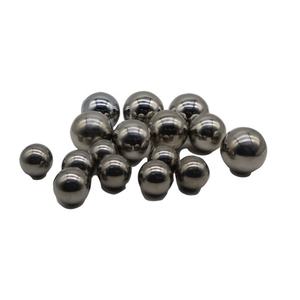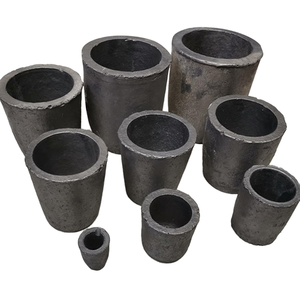High-Quality Silicon Carbide Products | Advanced Ceramic Solutions
PRODUCT PARAMETERS
Description
Overview of Silicon Carbide Ceramic
Silicon carbide (SiC) ceramic is a high-performance material known for its exceptional hardness, wear resistance, and thermal stability. It is widely used in cutting tools, abrasives, automotive components, and high-temperature applications due to its superior mechanical properties and chemical inertness.
Features of Silicon Carbide Ceramic
High Hardness: SiC ceramics are among the hardest known materials, making them ideal for abrasive and cutting applications.
Thermal Stability: They can withstand extreme temperatures without degrading, making them suitable for high-temperature environments.
Wear Resistance: Exceptional resistance to wear and abrasion ensures long-lasting performance.
Chemical Inertness: Resistant to most chemicals, including acids and alkalis, enhancing their durability in harsh conditions.
Low Thermal Expansion: Minimal expansion or contraction with temperature changes, ensuring dimensional stability.
Electrical Conductivity: Some forms of SiC ceramics exhibit semiconducting properties, useful in electronic devices.
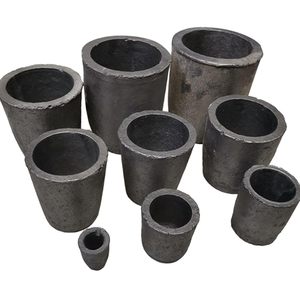
(Whole abrasion-resistant siliconized Silicon Carbide SISIC Ceramic Tile Tube Pipe Burner Product)
Specifications of Whole abrasion-resistant siliconized Silicon Carbide SISIC Ceramic Tile Tube Pipe Burner Product
The Entire Abrasion-Resistant Siliconized Silicon Carbide (SiSiC) Ceramic Tile, Tube, Pipeline, and Burner product line is engineered for extreme sturdiness and performance in high-temperature, abrasive, and destructive settings. Made via advanced siliconizing procedures, these parts integrate silicon carbide’s fundamental firmness with boosted sturdiness and thermal stability.
** Product Make-up **: Mostly composed of silicon carbide (SiC) with a silicon (Si) mixture, attaining a dense, non-porous structure. The silicon matrix enhances the ceramic matrix, enhancing mechanical stamina and oxidation resistance.
** Physical Characteristics **: Thickness arrays from 3.02– 3.10 g/cm ³, making certain lightweight yet durable building. Surface firmness goes beyond 9.0 on the Mohs range, with Vickers solidity of 2,500– 2,800 HV. Open up porosity is below 0.5%, lessening liquid/gas penetration.
** Thermal Qualities **: Operating temperature levels approximately 1,650 ° C( 3,002 ° F) in inert atmospheres and 1,380 ° C( 2,516 ° F )in oxidizing settings. Thermal conductivity is 120– 150 W/m · K, making it possible for effective warm transfer. Phenomenal thermal shock resistance holds up against fast temperature level fluctuations.
** Mechanical Stamina **: Compressive toughness surpasses 2,500 MPa, with flexural strength of 350– 400 MPa. Developed to endure high-pressure applications without contortion.
** Abrasion Resistance **: Superior put on resistance, examined under ASTM G65 requirements, showing 5– 10x longer life span than steel in slurry and particulate environments. Perfect for mining, cement, and power markets.
** Chemical Resistance **: Stands up to rust from acids (other than hydrofluoric and hot focused bases), antacid, and molten steels, making sure long life in chemical processing and metallurgical applications.
** Item Variants **:.
– ** Shingles **: Density 10– 50 mm, customizable shapes for lining chutes, hoppers, and cyclones.
– ** Tubes/Pipes **: Inner sizes 10– 200 mm, lengths as much as 3,000 mm, utilized in warm exchangers and glowing heaters.
– ** Burners **: Precision-engineered for consistent flame circulation, compatible with gas/oil fuels, running up to 1,600 ° C.
** Applications **: Ideal for kilns, heaters, boilers, chemical activators, and abrasive product managing systems.
** Installation **: Created for simple installing making use of high-temperature adhesives or mechanical fasteners. Minimal maintenance required as a result of wear-resistant homes.
** Certifications **: Compliant with ISO 9001 and global top quality standards.
** Advantages **: Integrates extreme hardness, thermal efficiency, and rust resistance, outshining conventional metals and porcelains. Suitable for sectors prioritizing durability and functional effectiveness under harsh conditions.
This line of product supplies unparalleled dependability, reducing downtime and maintenance prices sought after industrial setups.
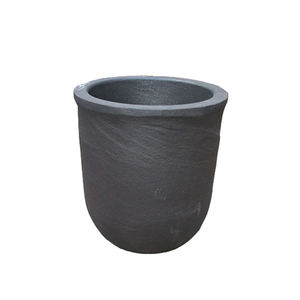
(Whole abrasion-resistant siliconized Silicon Carbide SISIC Ceramic Tile Tube Pipe Burner Product)
Applications of Whole abrasion-resistant siliconized Silicon Carbide SISIC Ceramic Tile Tube Pipe Burner Product
Applications of entire abrasion-resistant siliconized silicon carbide (SISIC) ceramic floor tile, tube, pipe, and heater items cover sectors requiring severe durability, thermal stability, and resistance to use and rust. These sophisticated porcelains excel in harsh environments because of their high firmness, thermal conductivity, and chemical inertness.
In ** commercial kilns and furnaces **, SISIC tiles line high-temperature chambers, shielding structures from thermal shock and abrasion. Their low thermal growth makes certain long life in cyclic home heating applications. Tubes and pipelines transport molten steels, abrasive slurries, or harsh gases, outperforming steels in durability and minimizing upkeep costs.
** Mining and material handling ** systems utilize SISIC ceramic floor tiles to armor conveyor chutes, receptacles, and cyclones revealed to unpleasant ores or minerals. Their wear resistance prolongs devices lifespan, reducing downtime. Similarly, SISIC pipelines take care of rough slurries in mineral handling, standing up to disintegration even at high flow prices.
** Chemical processing ** sectors count on SISIC parts for reactors, warm exchangers, and pumps dealing with harsh acids, antacid, or salts. The material’s chemical inertness makes certain stability in hostile atmospheres, while its thermal security supports high-temperature reactions.
In ** power generation **, SISIC heaters are important for coal-fired boilers and gas wind turbines. Their capability to endure severe temperature levels and thermal biking ensures effective gas combustion and reduced emissions. SISIC’s high thermal conductivity boosts warm transfer, improving power efficiency.
** Waste incineration ** systems utilize SISIC burner nozzles and liners to sustain harsh flue gases and abrasive ash. Their resistance to oxidation and thermal shock preserves operational reliability in continuous high-heat problems.
** Aerospace and automobile ** industries use SISIC porcelains in parts like generator blades, brake systems, and exhaust sensors. Their light-weight nature, combined with high toughness, improves efficiency in high-stress, high-temperature situations.
SISIC ceramic items are additionally used in ** semiconductor manufacturing ** for wafer-handling elements, where purity and resistance to chemical etchants are important.
Customizable in shapes and dimensions, these ceramics adjust to diverse commercial requirements, providing a cost-efficient solution for prolonging tools life, lowering power intake, and making sure process integrity. Their special buildings make them vital in applications demanding durability against mechanical, thermal, and chemical difficulties.
Company Introduction
Welcome to It-Chuiko, a premier international supplier of high-quality silicon carbide powder and silicon carbide ceramics. Our products are renowned for their exceptional hardness, thermal stability, and wear resistance, making them ideal for abrasives, cutting tools, refractory materials, and advanced semiconductor applications. We serve a diverse range of industries, including automotive, aerospace, and electronics, with a commitment to quality and innovation. With state-of-the-art production facilities and rigorous quality control, we ensure that our customers receive superior products tailored to their specific needs. Partner with us for reliable, high-performance materials that drive your business forward.
If you have any questions, please feel free to contact us(nanotrun@yahoo.com).
Payment Methods
T/T, Western Union, Paypal, Credit Card etc.
Shipment Methods
By air, by sea, by express, as customers request.
5 FAQs of Whole abrasion-resistant siliconized Silicon Carbide SISIC Ceramic Tile Tube Pipe Burner Product
1. **What is siliconized silicon carbide (SiSiC) ceramic, and how does it differ from standard silicon carbide?**
Siliconized silicon carbide (SiSiC) is a high-performance ceramic material created by infiltrating porous silicon carbide with molten silicon. This process enhances density, mechanical strength, and thermal shock resistance compared to traditional silicon carbide. SiSiC retains silicon carbide’s inherent hardness, abrasion resistance, and thermal conductivity but offers superior oxidation resistance and structural integrity in extreme temperatures, making it ideal for demanding industrial applications.
2. **What makes SiSiC tiles, tubes, pipes, and burners abrasion-resistant?**
SiSiC’s abrasion resistance stems from its ultra-high hardness (9.5 on the Mohs scale) and dense microstructure. The silicon infiltration process minimizes porosity, reducing surface wear from abrasive particles, slurry, or high-velocity gases. This makes SiSiC components exceptionally durable in environments like mining, power plants, or chemical processing, where mechanical wear and corrosion are common challenges.
3. **What temperature range can SiSiC ceramic products withstand?**
SiSiC ceramics operate reliably in temperatures up to **1600°C (2912°F)** in oxidizing atmospheres and **1380°C (2516°F)** in reducing conditions. Their low thermal expansion coefficient and high thermal conductivity prevent cracking under rapid temperature changes, making them suitable for burners, kiln furniture, and heat exchangers exposed to extreme thermal cycling.
4. **Are SiSiC products chemically resistant?**
Yes. SiSiC ceramics resist corrosion from acids, alkalis, and molten metals due to their inert chemical structure. The siliconized layer provides additional protection against oxidation at high temperatures, ensuring longevity in harsh chemical environments like metal smelting, waste incineration, or chemical reactors.
5. **How do SiSiC burner components improve industrial heating efficiency?**
SiSiC burners withstand high flame temperatures and thermal shocks, ensuring stable combustion and uniform heat distribution. Their low thermal mass allows rapid heating/cooling cycles, reducing energy waste. Additionally, their abrasion resistance minimizes erosion from fuel particles, extending service life and reducing downtime in furnaces, boilers, or gas turbines.
These properties make SiSiC tiles, tubes, pipes, and burners a cost-effective, long-lasting solution for industries prioritizing durability, thermal performance, and minimal maintenance.
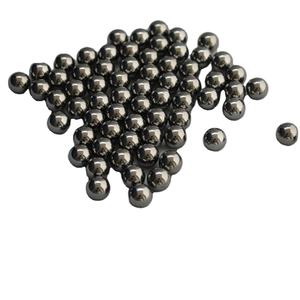
(Whole abrasion-resistant siliconized Silicon Carbide SISIC Ceramic Tile Tube Pipe Burner Product)
REQUEST A QUOTE
RELATED PRODUCTS
High temperature silicon carbide ceramic plates 1650C refractory silicon carbide tiles for kiln shelf
Industrial Machinable Black Silicon Carbide Plate Sintered Wear Resistant Zirconia Ceramic Silicon Nitride Insulation Rod Shape

Boron carbide Insert Silicon carbide Tiles From China
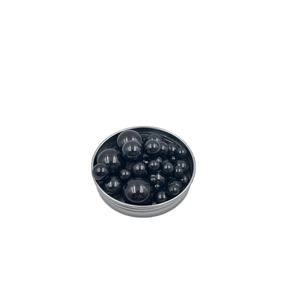
High Temp Resistant High-performance mechanical sealing systems Silicon carbide (SiC) sealing kits ceramic

Sic Ceramic Foam Filter 10-60 Ppi /aluminium Casting Ceramic Foam/honeycomb Filter Ceramic Plates Silicon Carbide Grey CN;SHX
